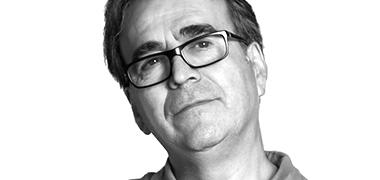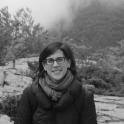We are celebrating the 10-year anniversary of Debats d’Educació by giving the educational community the opportunity to air its views

My name is Joan Subirats and I’m a professor of political science. After thirty-nine years teaching at the university, I continue learning. I am the father of three girls who have taught me so much. And I am happy to live in a demanding and stimulating era despite the uncertainties and fear.
The three things I’ve learned
The future is about shared education!
My education experience has been very much connected to spaces and logic that are basically hierarchical. Spaces designed and organised assuming the superiority of the teachers. It has been all about teaching logic based on the idea that some knew and others didn't. The teacher was the window to information the others didn’t have and, therefore, was situated in a position of superiority. Things are changing. Information is and will be more and more available. The costs for accessing it will be less. In this context, the idea is more to accompany the acquisition of knowledge rather than deciding what everyone needs to learn. We must recognise that a few, working together and seeking answers, will learn and assimilate more than when someone asks questions and gives you the answers already found and you just have to memorise them. The perspective should be more horizontal with more recognition for interdependency. Interestingly enough, we are facing a time when it will be just as important to reinforce people's autonomous abilities as it will to recognise that everyone is interdependent.
Diversify and Accept the Uncertainties and Complexities
How do we approach an era when the answers we have been building are no longer useful or even the questions we sought the answers to? The deficit is in content and methods. Our intellectual perspective is very much marked by illustrated and rationalist logic. And now is a time to open up the core and search for knowledge and emotions from already available bases of information. We will have to share perspectives and world views that are based on historical and cultural backgrounds that are very different from the ones we have experienced in European tradition. This means accepting that the dynamics of learning may not follow the patterns that have been with us since the Age of Enlightenment. Educating and being educated in diversity implies accepting that there is not just one road to rationality. Accommodating, integrating, articulating, experimenting, agreeing... should be ever more present in educational dynamics. As Freire once said, knowledge is plural and complementary. It cannot be hierarchically arranged. More uncertainties as a condition, not as a problem. More uncertainties accepted as the substrate of shared learning, as the place for experimentation and the construction of knowledge. We must learn from error. Simple and complicated at the same time. Not persist in error but incorporate it. Build by reconstructing the process that led to error. Debate the simplicity of the binary truth-error idea and incorporate insecurity in learning.
Heroes or Participants? Learning Together in the Territory
“School cannot do it alone”. “Education is everyone’s responsibility”. "It takes a village to raise a child”. We have all heard these phrases and have adopted all of them. It is harder to apply them. We know that education is not the same as teaching. We know a child’s educational success significantly depends on their parents' or family's parenting abilities. We know that one very important indicator of the educational level of a country is expressed by the total number of adults that have completed mandatory schooling. We know that a community’s commitment to education is key to understanding why it is that things work better in some places than others. Can we speak of social ecology in education? I believe so. We cannot construct dynamics of educational change in a country based on the exceptional capabilities of a few heroes that overcome all types of barriers and challenges. Activating the environment, generating complicity, offering and sharing space, incorporating social experiences in educational settings, taking educational experiences to social scenarios, blending and polluting with education are possible suggestions for societies that are too focused on the quick and direct utility of what is learnt. Constructing broad educational experiences, contrasting and confronting education and social practise, getting teachers and pupils out of their dens and getting those who believe they already know it all into educational arenas are all lines of work. Things to be learnt. Things to experiment with. And I am afraid this requires a lot more local involvement in the education system we have which suffers from the vice of centralisation. Without any territorial protagonism, a social and educational ecology is not possible.














 The texts published on this website are, unless otherwise indicated, covered by the Creative Commons Spain Attribution 3.0 licence. You may copy, distribute, transmit and adapt the work, provided you attribute it (authorship, journal name, publisher) in the manner specified by the author(s) or licensor(s). The full text of the licence can be consulted here:
The texts published on this website are, unless otherwise indicated, covered by the Creative Commons Spain Attribution 3.0 licence. You may copy, distribute, transmit and adapt the work, provided you attribute it (authorship, journal name, publisher) in the manner specified by the author(s) or licensor(s). The full text of the licence can be consulted here: